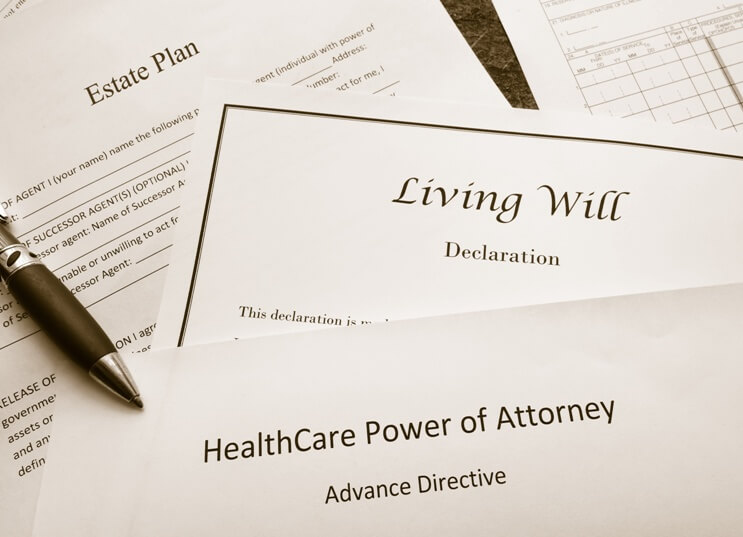When you get to your senior years, you think of incapacity or death more often than when you were young and active. You probably haven’t even thought of estate planning. However, it might be the perfect time to do it if you haven’t already.
Essentially, estate planning refers to a process of making a plan in advance regarding certain matters concerning your properties and assets after you die or become incapacitated. This can include plans relating to designating the persons or entities who will handle your finances and receive certain assets after your death. The primary purpose is to ensure your assets will be managed and transferred properly.
However, dealing with estate planning at an old age can be overwhelming. To help you with this process, here’s a step-by-step guide you need to consider from the get-go.
Read Also: Benefits of Placing Your House in a Trust
Make A Detailed Inventory Of Your Assets
It’s best to create a comprehensive inventory of all your assets when doing estate planning. By doing so, you’ll have an idea on the value of these assets, making it easier to administer them during your incapacity or distribute them to your heirs and other beneficiaries after your death.
However, when performing the inventory, you need to sort out the tangible and intangible assets and determine their estimated values correctly.
For instance, some common examples of tangible items can include real properties, vehicles, collectibles, including jewelry, coins, antiques, and other physical possessions. On the other hand, intangible things can consist of checking and savings accounts, insurance policies, investments, and retirement plans.
Once you have the inventory in place, you can start thinking about how you’re going to plan for the management and distribution of your estate in the event of your passing or incapacity.
Check Also: What If Witnesses to a Will Cannot Be Found?
Prepare A List Of Your Debts
Now that you have an inventory of all your assets, it’s time to make a separate list of all your debts that need to be paid. These monetary liabilities can include credit cards, mortgages, personal loans, and other debts you might owe from other individuals or entities. It’s essential to list all your debts to ensure smooth estate planning.
You can better create an estate plan for yourself and your family when you’re aware of how much money you owe. For instance, the more you know how much money you owe, the more you’ll have an idea of how much you need to pay them to free your estate from any liabilities. Once you pay all your debts, it’ll be easier to manage your estate.
Set Up The Necessary Legal Directives
When conducting estate planning, the subsequent course of action is to establish the necessary legal directives to ensure everything is well taken care of after your death or incapacity.
Typically, there are many directives you can include in your estate plan. With the help of an experienced lawyer from reliable law firms you can set up the following directives:
- Trust: When you have a trust in place, you can designate parts of your estate to go to a particular trustee for the benefit of your beneficiaries while you’re still alive. When you die or become incapacitated due to old age, your trustee will take over and work on the possible transfer of all your trust assets to your designated beneficiaries.
- Power of Attorney: If you’re unable to manage your financial affairs because of a medical condition, then executing a power of attorney can be an excellent idea. The one designated in the document will be your legal representative who will act on your behalf during legal and financial transactions, including managing your assets and paying your bills.
- Medical Care Directive: If you also become unable to make some medical decisions for yourself, you can create a medical care directive. Its purpose is to appoint someone to see to your medical care until it’s deemed necessary.
- Will: This is another directive you can make to ensure the persons whom you want to inherit your estate will have it after your passing. With a will, you can have peace of mind knowing your express wishes as to who will get what will be honored and upheld.
Check Your Beneficiary Designations
As you reach old age, it’s essential to review your beneficiary designations as part of your estate planning efforts. Doing this lets you rest knowing your assets are designated to the people whom you want to manage or inherit the assets after you become incapacitated or pass.
If you had provided some beneficiary designations a long time ago, find time to review them to ensure the right people will get your assets. For example, if your ex-spouse is still named as your beneficiary in your life insurance policy or will, then your current spouse may be unable to receive anything.
Moreover, make sure not to leave any beneficiary sections blank when filling up some legal estate planning documents. When you fail to do so, your assets will be distributed based on state rules when your estate goes to probate. Lastly, don’t forget to name contingent beneficiaries should your primary beneficiaries pass ahead of you.
Bottom Line
Preparing your estate at an old age can be tricky, especially if you have to start from scratch. But, by keeping this guide in mind, you can develop an effective estate plan smoothly and without any mishap.
Remember, having a plan can give you peace of mind, knowing your wealth and family are protected even after you go or become incapacitated.

